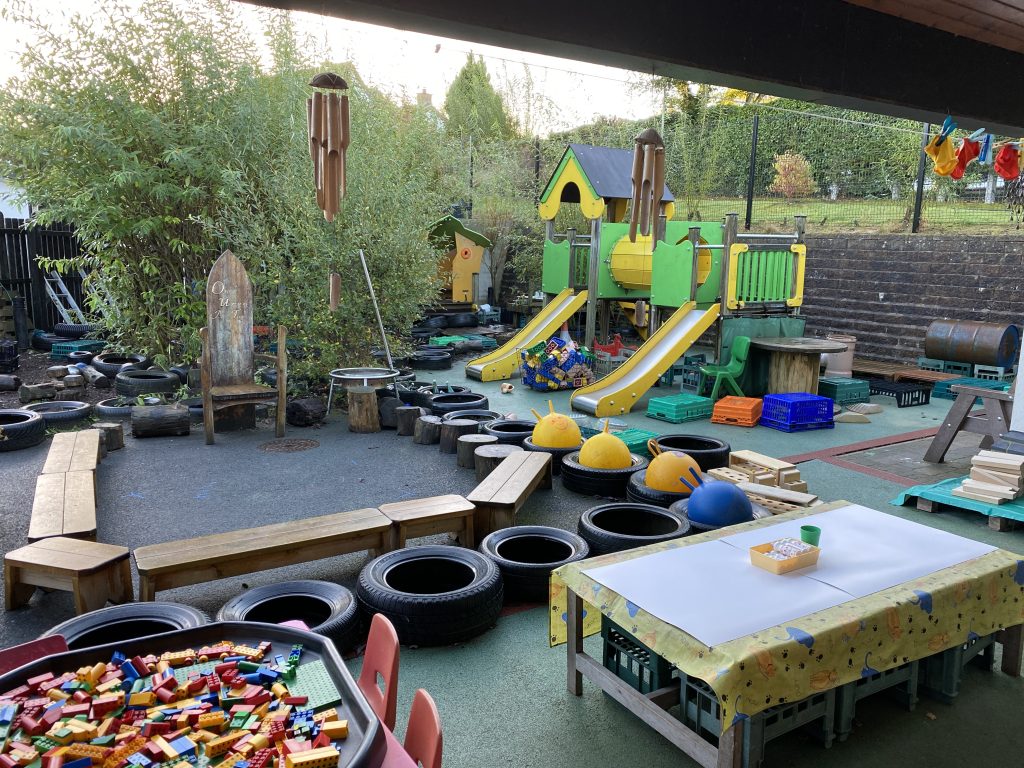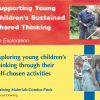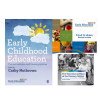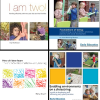Chapter 2: Early years curriculum: past, present and future – trajectories
Back to overview of chapter resources Chapter authors Verity Campbell- Barr Sasha Tregenza May Chapter overview In this chapter, we explore and analyse developments in
Play is a fundamental in childhood, and enshrined as a right within the United Nations (1989) Convention on the Rights of the Child. Although children play in different ways depending on cultural and environmental contexts, playing is a universal part of development and learning which helps children’s successful growth into complex and capable human beings. Today’s children are growing up in times of uncertainty and rapid change; extensive opportunities to play are crucial for them to develop flexible minds, creativity, ability to work with others, and resilience to manage future challenges. This chapter first considers the meaning of play, and its centrality in early childhood development. With examples of children’s play, we examine the policy contexts of play in early years settings across the nations of the UK. Finally, we suggest some necessary conditions to secure play as a right for all young children.
These photos show a covered structure with retractable cover for wet or very sunny days, welly storage & the gate families use as a main entrance with little peep holes so children can see their parent/carer as they leave.
Kierna Corr
Broadhead, P., Howard, J. & Wood, E. (Eds.) (2010). Play and learning in the early years. London Sage.
Bruce, T., Hakkarainen, P. & Bredikyte, M. (2017). The Routledge International Handbook of Early Childhood Play. London: Routledge.
Canning, N., (2020) Children’s Empowerment in Play: Participation, Voice and Ownership. London: Routledge/TACTYC.
Digital Futures Commission (2020) Panorama of Play literature review. London: 5Rights Foundation
Drake, J. (2014). Planning for Children’s Play and Learning, 4th Ed. London: Routledge.
Fearn, M., and Howard, J. (2012). Play as a resource for children facing adversity: An exploration of indicative case studies Children and Society 26, (6)456-468.
Gauntlett, D., Ackermann, E., Whitebread, D., Wolbers, T. and Weckstrom, C. (nd) The future of play: Defining the role and value of play in the 21st century, Lego Learning Institute.
Goldstein, J. (2012) Play in Children’s Development, Health and Well-being. Brussels:Toy Industries of Europe.
Gray, P. (2013) Free to Learn: Why Unleashing the Instinct to Play Will Make Our Children Happier, More Self-Reliant and Better Students for Life. NY: Basic Books.
Christina O’Keeffe, Sinead McNally, Teacher experiences of facilitating play in early childhood classrooms during COVID-19, Journal of Early Childhood Research, 10.1177/1476718X221087064, 20, 4, (552-564), (2022).
Christina O’Keeffe, Sinead McNally, ‘Uncharted territory’: teachers’ perspectives on play in early childhood classrooms in Ireland during the pandemic, European Early Childhood Education Research Journal, 10.1080/1350293X.2021.1872668, 29, 1, (79-95), (2021).
Play England (2012) A World Without Play: A Literature Review.
Tovey, H. (2007) Playing Outdoors. Spaces and Places, Risk and Challenge. Buckingham: McGrawHill/Open University Press
Whitebread, D., Basilio, M., Kuvalja, M., and Verma, M. (2012). The importance of play: A report on the value of children’s play with a series of policy recommendations. Brussels: Toy Industries of Europe (TIE)
Whitebread, D. (2018) Play: the new Renaissance. International Journal of Play, 7:3, 237-243, DOI: 10.1080/21594937.2018.1532952
Yogman,, M. Garner, A., Hutchinson, J., Hirsh-Pasek, K. and Michnick Golinkoff, R. (2018) The Power of Play: A Pediatric Role in Enhancing Development in Young Children, Pediatrics, 142 (3): e20182058.
Zosh, J., Hopkins, E., Jensen, H., Liu, C., Neale, D., Hirsh-Pasek, K., Solis, S. & Whitebread, D. (2017) Learning Through Play: A review of the evidence. The Lego Foundation.
Play in Education, Development and Learning (PEDAL) Hub
Projects, resource library of research and blogs on play and learning, which can be filtered by area of interest and age group
Learning Through Play in Pre-school and Foundation Stage
Guidance from Northern Ireland supporting practice in all curriculum areas through play-based learning
Learning Outdoors in Pre-school and Foundation Stage
Guidance from Northern Ireland focuses on play and learning outdoors
Learning, Playing and Interacting
Guidance booklet describing a continuum of play and learning, including how a child learns and the adult role, with case studies
The Lego Foundation
This website includes information, ideas, blogs and research: “Children already know play is their superpower. We’re here to convince the grown-ups”
Harvard Center on the Developing Child, The role of play in any early years setting
This video describes the impact of play in supporting responsive relationships, strengthening core life skills, and reducing sources of stress – fostering children’s resilience to hardship, helping to build their brains.
Harvard Center on the Developing Child, Building Babies’ Brains Through Play: Mini Parenting Master Class
This video from UNICEF describes the most important serve and return interactions through play which help build stronger connections in the brain, the foundation for all of a child’s future learning, behaviour, and health.
Birth to 5 Matters, Early Years Coalition
Guidance on play and learning, including playful adult input across all areas

Back to overview of chapter resources Chapter authors Verity Campbell- Barr Sasha Tregenza May Chapter overview In this chapter, we explore and analyse developments in
Back to overview of chapter resources Chapter authors Sue Allingham Nicola Brinning Chapter overview This chapter is built around the policy contexts of Wales and
Back to overview of chapter resources Chapter authors Alison Featherbe Louise Lloyd-Evans Helen Moylett Chapter overview In the early years, where our habits of mind
Back to overview of chapter resources Chapter authors Elizabeth Henderson Emma Gordon Helen McKinnon Jacqueline Bremner Maggie MacDonald Chapter overview Taking a Scottish perspective, this
Back to overview of chapter resources Chapter authors Cathy Nutbrown Becky Cook Chapter overview Early childhood education settings are increasingly, developing work with parents to
Back to overview of chapter resources Chapter authors Aline-Wendy Dunlop Lisa Barnes Myra McRobbie Chapter overview In this chapter we have chosen a transitions lens
Back to overview of chapter resources Chapter authors Jan Georgeson Emma Short Helen Adams Kate Ullman Chapter overview This chapter traces a brief history of
Back to overview of chapter resources Chapter authors Stella Louis Sally Cave Nasma Meah Chapter overview This chapter outlines what anti-discriminatory practice is and the
Back to overview of chapter resources Chapter authors Shaddai Tembo Fifi Benham Chapter overview This chapter examines the role of gender and LGBTQ+ inclusive practice
Back to overview of chapter resources Chapter authors Kathy Sylva Lesley Curtis Chapter overview This chapter explores the role of Children’s Centres (CCs) in serving
Back to overview of chapter resources Chapter authors Nathan Archer David Yates Chapter overview When considering the future, looking back at recent changes in the
Back to overview of chapter resources Chapter authors Elizabeth Wood Louise Kay Jessica Travers Chapter overview This chapter draws on international research to indicate how
Back to overview of chapter resources Chapter authors Cathy Nutbrown Beatrice Merrick Chapter overview This chapter is a little different from the others. It considers






Early Education
2 Victoria Square
St Albans
AL1 3TF
T: 01727 884925
E: office@early-education.org.uk